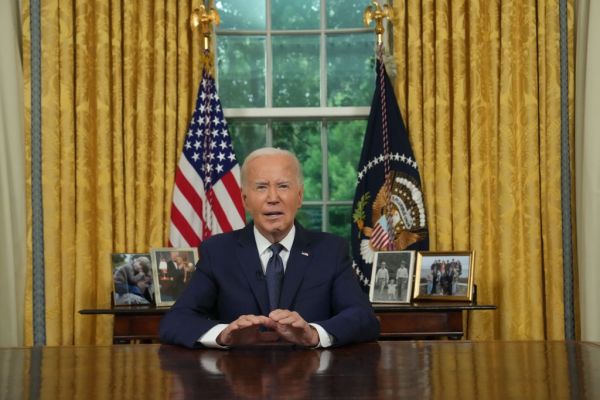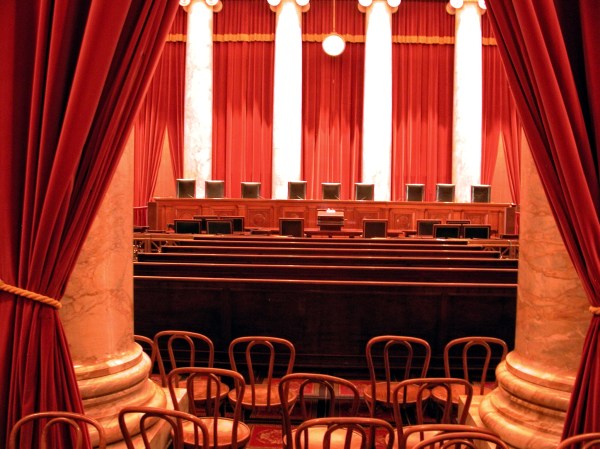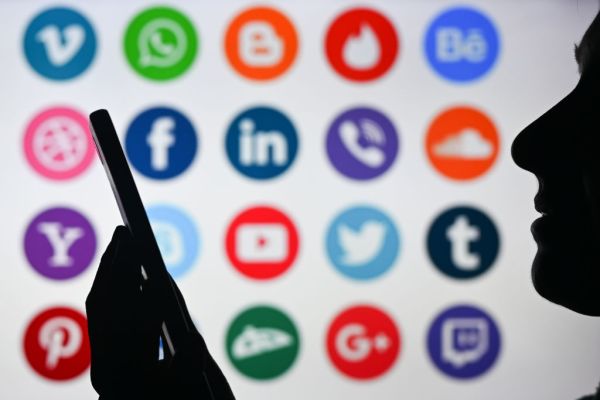Fried Catfish
Aside from craving a great meat-and-three plate, my head has been back to feeling cranky about the pitfalls of issue polling. According to an NPR/PBS NewsHour/Marist poll taken shortly before the Supreme Court held that Harvard’s admission policies were unconstitutional, 57 percent said they thought “affirmative action programs in hiring, promoting and college admissions should be continued.” Then again, a poll conducted two months earlier found that 69 percent believed that “private colleges and universities should not be able to use race as a factor in admissions.” (The number went up to 74 percent if you asked about public universities.)
In 2021, Gallup found that 62 percent favored “affirmative action programs for racial minorities.” But this year, Pew found that “half of U.S. adults say they disapprove of selective colleges and universities taking prospective students’ racial and ethnic backgrounds into account when making admissions decisions.”
Sure, you can come up with some logical through line that could square all of these answers—but be realistic: This is a data mess. And, as with my overall point about the frailty of issue polls versus candidate polls, there’s no “Election Day” to render a final judgment on the polls’ accuracy.
Or is there?
As some may remember, I’ve also been highly skeptical of polling on abortion in the past. It’s less about how to decipher data on the issue itself, which I actually think is impossible to poll because people have such nuanced views about abortion. (What if someone believes the line is 10 weeks with exceptions for the health of the mother but the pollster asks whether they are pro-choice or whether they’d support a 15-week ban with no exceptions. Or what if they have a different moral line than legal line? Or they think there should be civil penalties but not criminal?) I’ve been more focused on how hard it is to even discern how the issue affects people’s votes in elections.
In the end, I settled on this:The fact that a pro-choice ballot measure passed in Michigan while pro-life measures failed in Kansas and Kentucky in 2022 gives us a good indication that a majority of voters favor the pre-Dobbs status quo. But there’s not a lot of evidence that they care enough about the issue to change their vote from their otherwise preferred candidate to the one who aligns with them on that issue. (And the fact that most voters had already self-sorted themselves into the two major political parties along this issue fault line means we weren’t talking about many potential “abortion swing” voters anyway—but more about voter turnout, which also was only at the margins.)
So the question for affirmative action is whether we can find a similar ballot issue by which to judge public opinion. The abortion ballot measures were so instructive because they were “against expectations” in states like Kentucky and Kansas, which may have Democratic governors but are reliably red in presidential elections. If reliably blue Michigan had had the only ballot measure, we wouldn’t have been able to discern much.
Thus enters California. In 1996, California passed Proposition 209 and became the first state “to ban consideration of race and gender in public education, hiring and contracting.” Not surprisingly, in 2020, Democrats in the state tried to pass Prop 16 to repeal the ban. According to the New York Times:
It drew support from the governor, senators, state legislative leaders and a who’s who of business, nonprofit and labor elites, Black, Latino, white and Asian.
The Golden State Warriors, San Francisco Giants and 49ers and Oakland Athletics urged voters to support the referendum, Proposition 16, and remove “systemic barriers.” A commercial noted that Kamala Harris, then a U.S. senator, had endorsed the campaign, and the ad also suggested that to oppose it was to side with white supremacy. Supporters raised many millions of dollars for the referendum and outspent opponents by 19 to 1.
“Vote for racial justice!” urged the American Civil Liberties Union of Northern California.
In the end, 57 percent of California voters voted against the ballot measure at the same time President Biden trounced Donald Trump by 29 percentage points in the state and calls for racial justice were at their peak in the wake of the murder of George Floyd. If you’re curious about how the polls did, heading into the vote, two polls had nearly identical results with just more than 40 percent saying they would vote no, about 1 in 3 voting yes, and about 1 in 4 undecided.
From this, I glean a few things: Even among the voters most likely to support affirmative action (i.e., blue state Democrats), this is not a popular policy. And perhaps even more tellingly, a lot of these voters appear to be “poll-shy”: They weren’t inclined to give a pollster the
“wrong answer” over the phone but they voted against it in the privacy of the voting booth.
Which is all to say, ignore polling on affirmative action. When the wording of the question matters that much, it means that the underlying data probably isn’t very reliable. And if you just want a sense of where people stand on affirmative action, California (like Kansas) tells us that it’s not very popular even among its core constituents.
Collard Greens
I just have to highlight this great write-up by our friends over at AEI. “Between 1980 and 2012, several dozen counties voted for the winner of each presidential election. But after the 2020 election, just one of these bellwethers remained.” Perhaps even more fun, they look at the 14 bellwethers that fell in 2016 and the other 18 that fell in 2020. Not surprisingly, the 2016’ers—the ones that voted for Clinton over Trump—tended to be either “heavily-Hispanic counties in the South and West” or “college-educated cities and suburbs.” The 2020s that voted for Trump tended “to have lower college-education rates, large white working-class populations, and are located primarily in the Northeast and Midwest.”
All of that makes sense, but what about our last remaining bellwether in Clallam County, Washington, that managed to vote for Reagan, Bush, Clinton, Bush, Obama, Trump, and Biden?
In terms of education and income, Clallam is similar to the United States as a whole. Median household income and college degree rates are slightly below the national average, but, importantly, are well above most of the Trump-2020 bellwethers. … [But] Clallam’s population is 81.2 percent non-Hispanic white, compared to just 59.3 percent for the United States as a whole. This would suggest a far more Republican electorate, but, compared to Midwestern bellwethers, Clallam’s religiosity rates are substantially lower. Only 52 percent of the county’s residents are white Christians, while most rural Midwestern counties hover between 70 and 80 percent.
That all makes sense to me, but I’m somehow left feeling like this may be as much luck as skill. Nevertheless, good luck in 2024, Clallum!
Mac and Cheese
We’re in the July doldrums now. The Supreme Court term has ended. Voters are more focused on gas prices and airline delays than candidate forums. And I’m a little bit bored.
What am I watching? Donor numbers. The 2024 GOP campaigns need 40,000 unique donors (and at least 200 from 20 states) to get on the debate stage for the first GOP debate.
The first question is whether I think that’s a good metric. Eh. It’s certainly not a perfect one. As former Arkansas Gov. Asa Hutchinson pointed out, it “benefits candidates who generate online donations through extreme rhetoric and scare tactics.” He’s right, but also that’s how the game works right now. It’s hard to imagine a successful campaign that isn’t generating large fundraising numbers from small-dollar donors. Even a self-funding candidate would need to generate some enthusiasm from the GOP base, and donor numbers are a decent, if imperfect, metric for that. And I think it’s fair for the RNC to say that the purpose of the debate is to give voters a look at the viable candidates.
The second question is who can get over the line. Ron DeSantis, Vivek Ramaswamy, and Nikki Haley have all crossed the line. It sounds like Tim Scott has, too. Chris Christie and Mike Pence say that they’re confident that they’ll get there in the next few weeks—but they kind of have to say that. Both got into the race later than the other candidates, which could make this a scramble, but both campaigns undoubtedly have known since day one how important it is to get on that stage. In the end, I expect them both to make it in part because if they’re even close, there’s a lot you can do to “buy” donors (which would likely involve spending more than you actually raise) if you need to. Hutchinson, Hurd, Suarez, and Burgum are unlikely to meet the donor threshold.
The third problem is that it’s not the only requirement. Candidates also have to take a pledge to support the eventual nominee. Hurd, for example, already said he wouldn’t do it—so he’s under no pressure to hit that donor threshold anyway. Christie said he’d take the pledge … kind of. “I’ll take the pledge as seriously as Donald Trump took it in ’16,” he told the Dispatch Politics team last month. We’ll see if the RNC lets that fly.
Candidates also have to get at least 1 percent support in three national polls or 1 percent in two national polls and 1 percent in early state polls from two separate states. It’s hard to imagine any candidate meeting the donor threshold but failing in the polling one. On the other hand, Mike Pence and Chris Christie are both in the No. 3 spot in some polls, which points to just how steep a climb that donor threshold really is.
And who is going to show up for this debate anyway? DeSantis said he’d be there whether or not Trump shows. That announcement comes as less of a surprise now that we’ve seen DeSantis slipping—both in terms of polls and vibes, I’d argue. He needs a game changer to overtake Trump (as opposed to all of the other candidates that need Trump to fall off the side of a cliff) and that’s what debates offer (even if they rarely deliver). And now that DeSantis has confirmed he’s going to be there, the question is whether Trump will feel the need to show up given his recent, cough cough, legal problems—and the likelihood that a Georgia indictment may drop between now and debate night as well.
As of today, my prediction for who is on that stage: Trump, DeSantis, Scott, Haley, Ramaswamy, Christie, Pence.









Please note that we at The Dispatch hold ourselves, our work, and our commenters to a higher standard than other places on the internet. We welcome comments that foster genuine debate or discussion—including comments critical of us or our work—but responses that include ad hominem attacks on fellow Dispatch members or are intended to stoke fear and anger may be moderated.